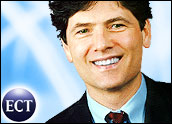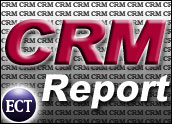
Every year I write two columns that are a little different. The first, which is this one, is my attempt at quality control and I use it as much for sport as to assess how I did a year ago in predicting the events of the year now ending. You might think I would learn from this, but the second column goes ahead and makes the same mistakes I made a year earlier — trying to predict the year ahead. Here it goes.
In reviewing last year’s prognostications I have to say that I (blush) was pretty much on target in discussing the economy, the housing bubble, energy prices and interest rates. At the time, I wrote:
“In general, I think the U.S. economy is in for some rough sledding, and I hope I am wrong. The housing bubble is showing signs of bursting, interest rates are stable but fuel prices are on the rise again after a pre-election soft landing and the dollar is pretty weak against the Euro. Consumer confidence has been in negative territory for a while.”
Not bad I guess, if you like being right about bad news. Of course, being right and being timely are two different things — we are only now encountering some of the rough sledding I expected. There is a great deal of latency in the economy and much of the negative effects I feared are still potentially in the future.
Hit and Miss
I also said I thought it would be a good year for on-demand companies to “export” their services. By that I meant that a weak dollar and low costs for on-demand would be a natural for helping on-demand vendors expand overseas.
It looks like that is happening, though I didn’t look up any hard numbers. The indicator I use is the number of foreign languages that popular on-demand software is being offered in and that number is significant. Even Microsoft, a relatively late entry in this market, tells me it is offering lots of languages for its products.
One of my favorite prognostications shows just how dangerous it is to prognosticate; even though I got the big picture right, I missed a good detail. Last year I wrote:
“I think smaller companies with innovative on-demand ideas will find traction in this environment. … The CRM areas that I would target include what is called sales effectiveness, but which is really a market basket of companies that need better definition. Also, marketing and social networking companies will, I think, find receptive audiences.”
I think that was all more or less spot on, though the detail that I never saw was that all this effectiveness and networking would begin to coalesce into what we’ve been calling Sales 2.0 ever since David Thompson, CEO of Genius.com, and friends convened the first Sales 2.0 conference in San Francisco in September. I think I should get half credit (at least!) for that one.
My last prediction in that column now looks like a “duh!” moment. I said, “So the strategy I would pursue in 2007 is to remain nimble and opportunistic — innovative solutions that help to lower costs should find a decent reception and opportunistic buyers might be able to score some deals.” I think that even a company on life support would find the value in any kind of solution that helped lower costs. I give myself no points at all for that chestnut.
Street Sense
On another angle, I had the opportunity to go to the Kentucky Derby in 2007 and that was quite a trip. If anything, you’d think it would have been a great chance to test my abilities as a forecaster. The short story is that I put $10 to win on the nose of the eventual winner, Street Sense, but I also had a few tickets on some other horses I thought were pretty good too. To be painfully honest, the only reason I had any money on Street Sense was that I stood in the betting line behind some Bourbon fans from a local university.
Through the alcohol haze, one of them convinced me that Street Sense was one of a very few horses in the race who had raced in sloppy conditions, and it was that kind of day. So that’s how I got onboard the winner.
For the day I was down only a few bucks once you factor in the cost of my wife’s dress, the jacket, shoes, purse — and that hat! All in all, it was a great road trip especially since I was also with pal Paul Greenberg.
Bottom line though, it was a pretty accurate test of my ability as a prognosticator.
Denis Pombriant is the managing principal of the Beagle Research Group, a CRM market research firm and consultancy. Pombriant’s research concentrates on evolving product ideas and emerging companies in the sales, marketing and call center disciplines. His research is freely distributed through a blog and Web site. He is working on a book and can be reached at [email protected].






















































